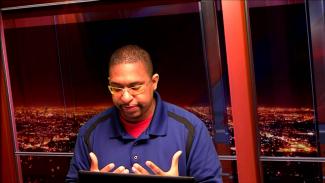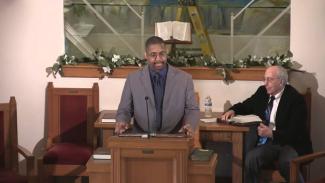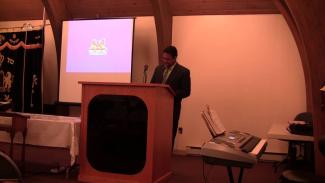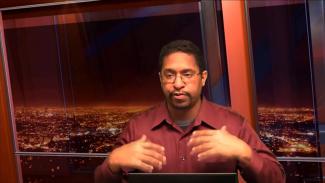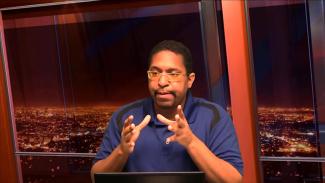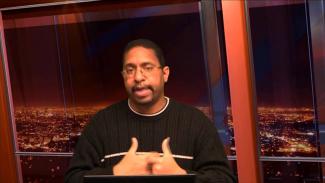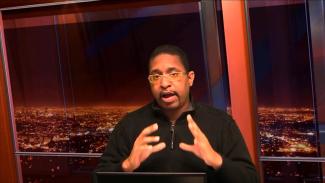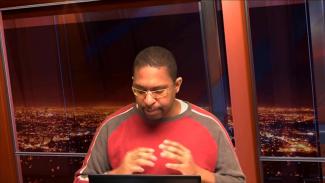How does Matthew introduce the gospel? Who exactly was Matthew and why was his perspective on Jesus' ministry unique? Why does he use a genealogy to introduce Jesus as the Messiah and what does this ancestral record say about who Jesus is? What can we learn in the Bible about who Jesus is as a person, what God is like, and His mission here on earth? Was Jesus really divine? What did Jesus reveal to the world about God? What can we learn about God through the people Jesus was related to? What hope might be in all this for us today?
2016 Broadcasts
Choose from all 2016 broadcasts or select a topic from the menu.Regardless of how difficult things may be in our lives, or how much evil seems to be prevalent, God has a plan to rid the world of evil. He promises a new heaven and a new earth where suffering, death, pain, and evil are no longer in existence. How will God rid the world of evil? Can we trust God to be fair in the judgment? What takes place in the 3 phases of the judgment? Which judgment takes place before the return of Christ? Will the righteous experience the 7 last plagues? Why would God send plagues on the earth? Will Satan be able to tempt God's people during the 1000 years?
John Spellman preaches at the Babylon SDA Church. The writers of the Bible testify that its origins begin with the Holy Spirit who spoke and move upon men. The Testimony of Jesus warns us of things to come. The mind of Christ is certainly needed today. Are you prepared to stand for your faith against opposition and impossible odds? What if standing for the truth meant being unpopular? What if it meant being ridiculed?
Benhadad, the king of Syria, oppressed Israel during the reign of Ahab. Because of Israel's rebellion this was, for a time, permitted by God. Soon Benhadad begins to make insulting demands of Ahab and when Ahab refuses they go to war. But God was with the Israelites and delivered Benhadad into their hand. The Syrians attack again reasoning that the only reason they lost was because God was a god of the hills. God answers this challenge also but when Benhadad is spared by king Ahab, a prophet makes a strange request. A request that if refused, could cost someone their life.
How did Paul summarize the gospel? What was his take on the reality of rebellion and the Great Controversy? How did Paul suggest that we fight in this spiritual war? What did he mean when he compared the church to members of a body, materials of a building, or crops to be grown? How did Paul answer challenges that suggested that there was no resurrection of the dead? This week we take a look at Paul's teachings and how he illuminated many of these themes. Paul spoke of Jesus as the 2nd Adam and showed how the consequences of Adam's mistake was reversed through Christ's ministry.
What challenges and obstacles did the Early Church face? How did Jesus redirect his disciples to his true purpose while they still held on to their pre-conceived ideas and biases? What exactly is the good news of the gospel and in what way were Jesus' followers witnesses? How did the Great Controversy play out in the early church? In what ways did Satan attack the church from within and without? What can we learn from the Early Church that could help us with our challenges today?
John Spellman preaches at the Beit Shalom SDA congregation. Sermon is based on Exodus 17: Moses prays for the children of Israel despite their constant murmuring and complaining. God blesses Israel only as Moses continues to pray for them. But what happens when the prophet grows tired? What happens when he loses strength? Today, God has many leaders who need support. How do we support those that need our help? What about families that need to support one another? What happens when they don't? Is there still a need today to lift people up?
How did Jesus' teachings portray the Great Controversy? In what way did Jesus describe the struggle between good and evil? How can we have rest in Jesus? In what ways does He lighten our burdens? With all the challenges we face in life, can this rest Jesus offers truly make a difference? What does the parable of the sower reveal about how people respond to the gospel? How does it portray the struggle between good and evil? What kind of ground best represents you and I? What did Jesus teach about foundations? How can we make Him our rock?
How did Jesus overcome temptation? Why is He the second Adam? What was the purpose of Jesus coming to earth? What is the significance of "Emmanuel" or "God with us". Is it possible to overcome temptation as Jesus did? How can the Bible aid us in the times of our temptations? What parallels exist between the wilderness temptation and events like the Fall and the Exodus from Egypt? How does Jesus' humanity help Him to relate to struggling sinners as our High Priest? This week, as we address many of these issues, we will explore how to be victorious over sins.
What can we learn from the time period of the judges? Why did God raise up these men, women, and children? Why was victory over the army of Sisera given to a woman, Jael, rather than Barak? What can we learn from the story of Gideon about faith? How does the story of Samson show God's willingness to work through people even when they make mistakes? We will also cover the story of Ruth and Samuel. God works through human agencies when they are fully dependent on Him. Yet, even when they go down wrong paths, He turns problematic situations into opportunities.
As we study rebellion and redemption, what impact did sin have on humanity? How did sin impact the children of Adam and Eve as well as the generations to come? What does all this have to do with the Great Controversy? Did God step in to deal with this crisis or did He leave humanity on its own to fend for themselves? What does God's relationship with Abraham teach us about how sure can we be about God's promises? How do the lives of Jacob, Esau, and Joseph show us the growing process God takes us through to accomplish His plans for us?
This week we start a new series on rebellion and redemption. Why is the world as messed up as it is today? Are the corruption, disease, pollution, and problems we observe part of God's design? What went wrong in the Garden of Eden? Is God to blame for Adam and Eve's mistake? Why did the tree of the knowledge of good and evil exist? Was mankind set up to fail? Why was humanity given power to choose? How does all this tie in with the Great Controversy and with our lives today?


